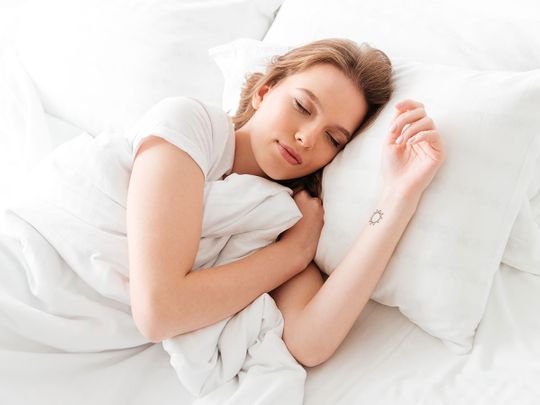New York: Researchers have revealed that adults with the healthiest sleep pattern have 42 per cent lower risk of heart failure regardless of other risk factors compared to adults with unhealthy sleep patterns.
Healthy sleep patterns are rising in the morning, sleeping 7-8 hours a day and having no frequent insomnia, snoring or excessive daytime sleepiness, the study published in the journal Circulation said.
“Our findings highlight the importance of improving the overall sleep patterns to help prevent heart failure,” said study author Lu Qi from the Tulane University in the US.
This observational study examined the relationship between healthy sleep patterns and heart failure and included data on 408,802 UK Biobank participants, ages 37 to 73 at the time of recruitment (2006-2010).
Incidence of heart failure was collected until April 1, 2019. Researchers recorded 5,221 cases of heart failure during a median follow-up of 10 years.
Researchers analysed sleep quality as well as overall sleep patterns.
The measures of sleep quality included sleep duration, insomnia and snoring and other sleep-related features, such as whether the participant was an early bird or night owl and if they had any daytime sleepiness.
“The healthy sleep score we created was based on the scoring of these five sleep behaviors,” Qi said.
Sleep behaviours were collected through touchscreen questionnaires.
Sleep duration was defined into three groups: short, or less than seven hours a day; recommended, or even to eight hours a day; and prolonged, or 9 hours or more a day.
The findings showed that participants with the healthiest sleep pattern had a 42 per cent reduction in the risk of heart failure compared to people with an unhealthy sleep pattern.
They also found the risk of heart failure was independently associated and: eight per cent lower in early risers, 12 per cent lower in those who slept 7 to 8 hours daily, 17 per cent lower in those who did not have frequent insomnia and 34 per cent lower in those reporting no daytime sleepiness.
The researchers noted other unmeasured or unknown adjustments may have also influenced the findings.

